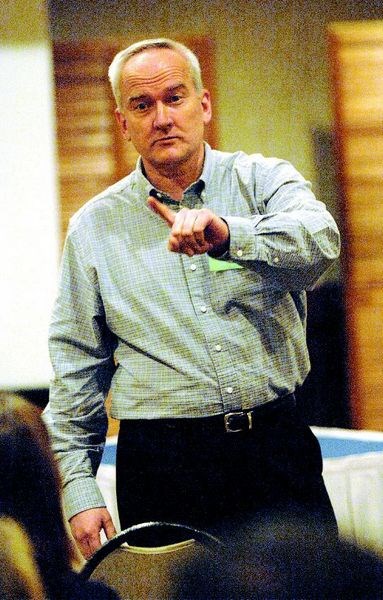If you want to sustain safety in tough economic times, don't focus on safety as an add-on to your operations, instead approach your business with an eye to improving efficiency and profitability, B.C. Forest Safety Council CEO Reynold Hert told the annual Western Silviculture Contractors' Association conference Wednesday.
The focus on business will lead you to re-examine your operation's designs, methods of work and the knowledge and skills of your workers, and if you make changes and check on them, injury rates will drop, Hert told conference delegates at the Coast Inn of the North.
The event -- which includes a trade show -- continues today and Friday.
Hert, who spent three decades in the forest industry before joining the forest safety council, recounted to the conference how he had a safety epiphany when he was in charge of sawmills for Weyerhaeuser.
He watched a trim saw operator reach in to the running machine to dislodge a stuck board, which was counter to rules that required operators to lock-out machinery before removing stuck boards or making repairs.
The machine operator told Hert, however, if he followed the lock-out rules, the mill would never run because it happened so much. Hert insisted the worker follow the lock-out procedures and the next day, the equipment was shut down 90 times. Hert concluded there must be a problem with the equipment and he asked the millwrights and machinists if they could fix the problem. They did, and after the repairs, the mill set record production on the next shift.
It was then that Hert said he realized that safety and productivity, and profitability, were inseparably linked.
He also pointed to an example from the silviculture sector in Saskatchewan where logging debris was pushed into rows and trees were planted in between. The normal mode of operation was for the planters to step over the rows, and in one case a worker tripped and injured themselves seriously. When he asked why the rows were set parallel to roads, Hert found there was no particular reason. The rows were switched so treeplanters planted between the rows, avoiding stepping over them. It drove down injury rates and increased productivity.
The Western Silviculture Contractors' Association is a member of the B.C. Forests Safety Council, and industry-led group whose aim is to improve safety in the forest sector.



